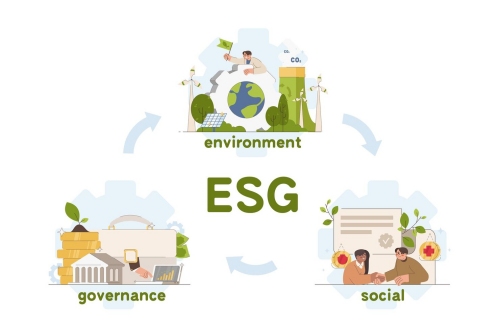Hello and welcome back to the Skills 360 podcast. I’m your host, Tim Simmons, and today we’re going to look at the impact and implications of DEI – or diversity, equity, and inclusion – on the workplace.
As part of the “social” aspect of ESG, DEI has exploded in importance in recent years. Over 50% of employees in the US believe this increasing attention is warranted. And, as we discussed in our last lesson, customers are increasingly discerning when it comes to ethical performance.
So, it’s not just your HR manager who’s thinking about this anymore. The companies that are excelling in this area have it baked in at every level. And that includes commitments at the C-suite level. Given this explosion of attention, it’s worth unpacking exactly what we mean by these terms, and what it means for the workplace.
“Diversity” refers to the presence of different people in an organization. And while we might immediately think about gender and race, we’re also talking about age, disabilities, religion, and sexual orientation, just to name a few. Diverse organizations have many different people. “Inclusion” is an atmosphere where all these people feel a sense of belonging. And where there are systems in place to make them feel welcome and valued.
“Equity” can often get confused with “equality,” but it’s really not the same. Equity acknowledges that not everyone has the same starting point, and that some people might need additional support to take advantage of opportunities. So companies committed to equity focus on systems and processes that create fairness and recognize those different starting points.
Now, why are companies choosing to invest in diversity, equity, and inclusion? Well, some would say it’s simply the right thing to do. In a world with so much inequality, DEI initiatives can be viewed as part of humanity’s efforts to make a better world.
But it’s not just about what’s good for society. Progress in DEI translates into many benefits that have a positive impact on the bottom line.
For one thing, DEI helps ensure a wide range of talent, knowledge, and perspectives. Diversity doesn’t just happen on its own. In fact, if you advertise a new position, there’s a good chance that it’1I attract people from similar backgrounds to what you’ve already got. Taken to the extreme, that leads to a stagnant workplace, which is bad for innovation.
But once you’ve got the people through the door, the inclusion part is critical. People who feel like they belong, and that their voices are heard, perform better. The stress of being actively excluded or downright mistreated obviously won’t inspire the best work. So making sure all your employees feel they’ve got influence and opportunity is good for the whole team.
And all of this leads to better business performance. There’s a ton of research to back this up. Consider the fact that one study showed that increasing female partners’ shares by 10 percent leads to a 10 percent rise in revenue. Or another recent report that showed that culturally diverse executive teams are 33 percent more likely to lead their industries in profitability.
Now, real progress on the DEI front requires much more than just a few token hires. And it can’t be just another extra thing tacked on to existing work. Implementing DEI needs expertise, budget, and a commitment from the top. In many companies, the executive team holds final accountability. That is, there are CEOs whose performance objectives include measurable success on diversity and equity.
And that word “measurable” is important. DEI leaders ground their work in the data. They’ve studied their workforce to establish baselines. They’ve got both quantitative and qualitative metrics to tell them whether they’re making a difference. They’re measuring everything from diversity in job applicants to representation in the Board room in order to implement DEI.
Clearly, the 21st century has brought new perspectives on diversity, equity, and inclusion. And that’s wrapped up in broader concerns about the role of businesses in creating a society that works for everyone, not just those who’ve inherited privilege. With all this change, and with consumers, employees, governments, and civil society expecting more from the corporate world, the business that doesn’t pay attention to DEI risks getting left behind.
That’s all for today. So long. And see you again soon!















